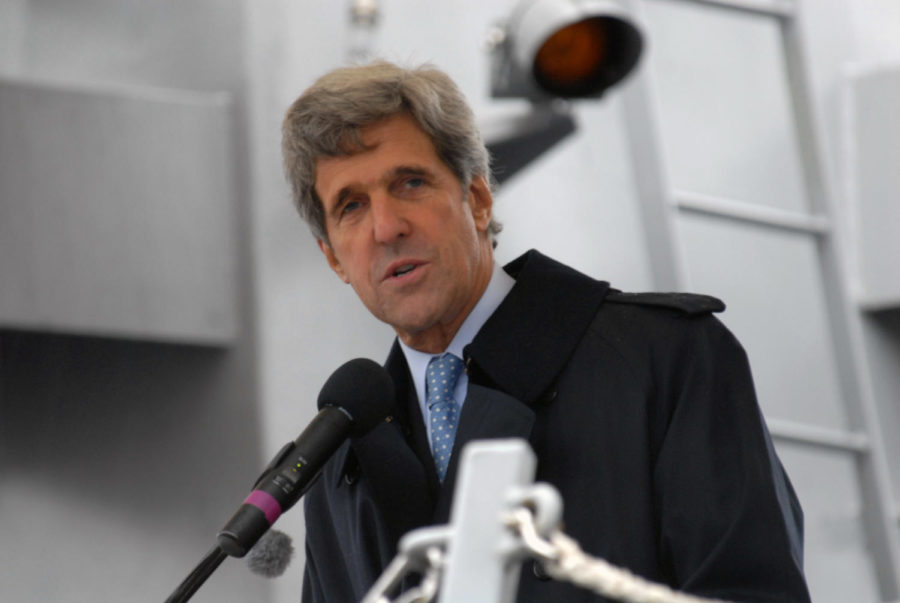Editorial: Climate change is not a weapon of mass destruction
John Kerry
February 21, 2014
Earlier this week, Secretary of State John Kerry likened global climate change to a weapon of mass destruction. Specifically, Kerry said it was “perhaps the world’s most fearsome weapon of mass destruction.” While Kerry is right to categorize climate change as an issue of supreme importance, he should have known better than to use buzz words that will only land him in hot water.
The kettle has already started boiling, with former Speaker of the House Newt Gingrich, now a commentator for CNN, calling for Kerry’s resignation, taking to twitter to add “A delusional secretary of state is dangerous to our safety.” Gingrich let his thoughts on the issue be very well known, claiming “I think it’s very troubling that our secretary of state … believes that climate change is a greater danger than a nuclear war.”
Others have blasted Kerry for the way he spoke about climate change as well. Senator John McCain (R-Arizona) spoke up, saying “So [Kerry] has to go over to Asia and talk about climate change? And saying it’s the most important issue? Hello? On what planet does he reside?” McCain also touched on a number of issues he felt would be a more appropriate use of the secretary’s time, including the Syrian conflict and US-Iran nuclear disarmament talks.
While McCain and Gingrich have both publicly accepted the fact that climate change is both real and an important global issue, they have not backed away from their claims that Kerry was out of line in comparing it to more visceral dangers.
Even to those of us who accept the scientific consensus on human-induced climate change, Kerry’s remarks could be considered over the top. Speaking to a crowd in Indonesia, Kerry was making a stark point to the low-lying nation of islands. Being especially endangered by severe ocean storms and sea level rise, Indonesia has one of the greatest stakes in curbing carbon emissions.
Kerry called on those listening in Indonesia to demand better from their leaders, and accepted the fact that the United States, one of the biggest carbon polluters on the planet, needs to do more as well. Just before his now-controversial speech, the Secretary of State released a joint statement from Beijing with the Chinese government, in which it was promised that the two nations would work together to actively combat their contributions to climate change.
In addition to these statements by Kerry, President Obama has also been hitting the message of climate change hard as of late. Announcing the proposal of a one billion dollar “climate resilience fund,” Obama has upped his rhetoric on this issue. The taxpayer-sponsored fund would still require the approval of Congress, an extremely doubtful prospect at best. Obama has, however, also proposed new emission standards for a number of sources, including coal-powered energy plants and heavier vehicles, which would largely be the result of purely executive actions, meaning they could go into effect whether or not Congress would approve.
The renewed focus on climate change is a promising sign from the executive office, but comparing relatively distant and vague global changes to immediate dangers is not the way to go. Kerry’s comments regarding climate change as a weapon of mass destruction were only ever going to distract from the issue. Given its grave importance, someone in his position should have known better.







